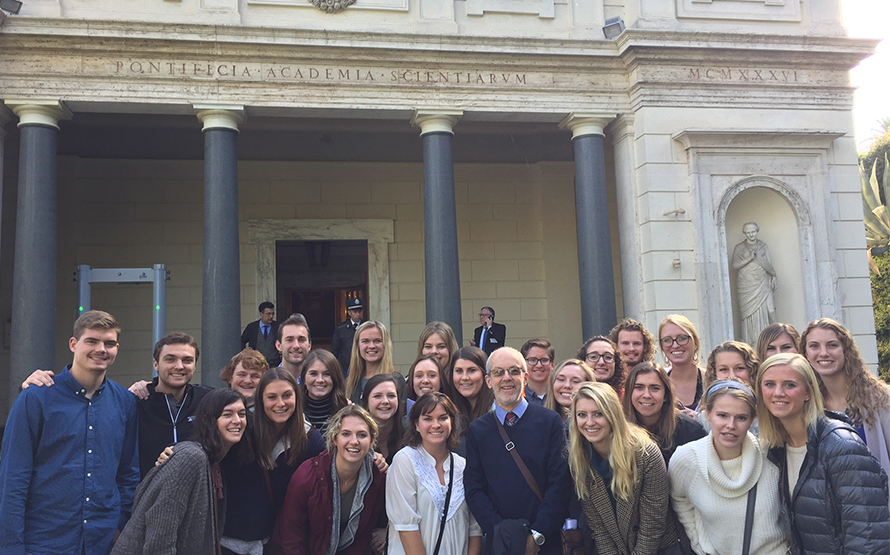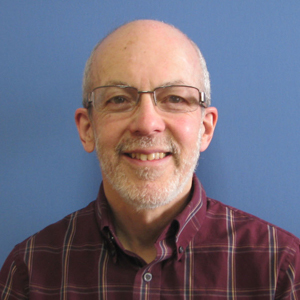
How to be a climate activist
When I walked into my chemistry class the morning of 9/11, the syllabus seemed irrelevant. We had to address the enormity of the unfolding events of that day, but how? All we could do was to hold those suffering in our hearts and minds and be kind to ourselves and others during that time of crisis.
Now we face an accelerating climate crisis, which will bring far worse consequences. How should we respond? As scientists and educators, we generally are held in high regard by our students and the public. We should use that regard as a platform to bring the tremendous financial and human costs of inaction on climate change to their attention. We should extend our professional ethics to include care for human and biosphere health, as well as issues of social justice, because climate change disproportionately affects those with the fewest resources.
I came to this conclusion five years ago when a new administration rolled back environment safeguards and withdrew the U.S. from the Paris Climate Accords. I started talking to anyone who would listen. A Ph.D. in biochemistry and decades of teaching and research experience gave me more than enough background to understand and distill the climate change literature. My experience teaching nonmajors’ science and ethics courses made it easier to connect with the general public. Four years ago, I wrote for ASBMB Today on my climate change activism. I’ll share some of my activities since then. I hope they will encourage you to try as well.

There are many ways to spread the message and many groups willing to listen to credible voices on climate change. I have discussed climate change on local radio talk shows and given talks at my institution and to church and civic groups. During a study-abroad semester in 2018, I arranged for my students to attend a climate change conference held at the Pontifical Academy of Science. Many students felt it was a highlight of the trip. On returning home, I worked with our theology department to invite a theologian to speak on climate change and religion and tried to engage the local clergy in bringing climate change and creation/biosphere care into their routine ministries. I reached out to teachers in five local high schools to help organize students to develop a communitywide, student-led climate advocacy group. I’ve written multiple op-ed pieces for our local newspaper. Also, I led a team of graduate students and faculty to write an article for Biochemistry and Molecular Biology Education entitled “Introducing climate change into the biochemistry and molecular biology curriculum.” In 2020, I retired and moved to New York City to help take care of grandchildren, who have made my mission even more urgent to me.
I’ve learned a lot about climate communication through these efforts. Here is my advice:
- Take every opportunity to link your course content to climate change. For example, when discussing carbonic anhydrase, talk about genetic engineering to enhance its carbon capture potential.
- Give talks to any community group you can. As scientists and educators, we are highly trained and generally respected. Use your agency and start talking! Use the 2022 IPCC report for background.
- Deemphasize scientific details. Studies suggest they won’t help change people’s minds. Start with the notion that we all know and feel that the climate is changing and simply state that the science is settled.
- Emphasize shared values such as environmental stewardship, care for life on earth, and concern for the quality of our children’s and grandchildren’s futures.
- Focus on solutions to address, mitigate and adapt to climate change. Emphasize renewable energy, which polling data show over 75% of people support, and the underappreciated and deadly health consequences of pollution from fossil fuel use.
- Give your audience hope but also an understanding of the urgent need to move on climate change.
- Give them a task — to reach out to their community (religious, civic, business) and elected leaders (local, state, national) and express their concern and request immediate action. The message can be simple: Take concrete climate action for the next generation now.
- Join organizations with likeminded people to sustain your efforts. I have found the Citizens’ Climate Lobby a great source of support, motivation and outreach opportunities. They helped arrange for many of my outside speaking engagements.
The stakes are too high to do nothing. Do it for the generations that will inherit the warming earth we bequeathed them. You will feel better that you are trying to do your part to help.
See us at #DiscoverBMB
Henry Jakubowski and Karla Neugebauer (featured in the climate change article “What does biochemistry have to do with climate change?”) will host an interest group on “Biochemistry and Climate Change” on March 25 at Discover BMB 2023, the ASBMB annual meeting in Seattle.
Enjoy reading ASBMB Today?
Become a member to receive the print edition four times a year and the digital edition monthly.
Learn moreFeatured jobs
from the ASBMB career center
Get the latest from ASBMB Today
Enter your email address, and we’ll send you a weekly email with recent articles, interviews and more.
Latest in Opinions
Opinions highlights or most popular articles

Women’s health cannot leave rare diseases behind
A physician living with lymphangioleiomyomatosis and a basic scientist explain why patient-driven, trial-ready research is essential to turning momentum into meaningful progress.

Making my spicy brain work for me
Researcher Reid Blanchett reflects on her journey navigating mental health struggles through graduate school. She found a new path in bioinformatics, proving that science can be flexible, forgiving and full of second chances.

The tortoise wins: How slowing down saved my Ph.D.
Graduate student Amy Bounds reflects on how slowing down in the lab not only improved her relationship with work but also made her a more productive scientist.

How pediatric cataracts shaped my scientific journey
Undergraduate student Grace Jones shares how she transformed her childhood cataract diagnosis into a scientific purpose. She explores how biochemistry can bring a clearer vision to others, and how personal history can shape discovery.

Debugging my code and teaching with ChatGPT
AI tools like ChatGPT have changed the way an assistant professor teaches and does research. But, he asserts that real growth still comes from struggle, and educators must help students use AI wisely — as scaffolds, not shortcuts.

AI in the lab: The power of smarter questions
An assistant professor discusses AI's evolution from a buzzword to a trusted research partner. It helps streamline reviews, troubleshoot code, save time and spark ideas, but its success relies on combining AI with expertise and critical thinking.

